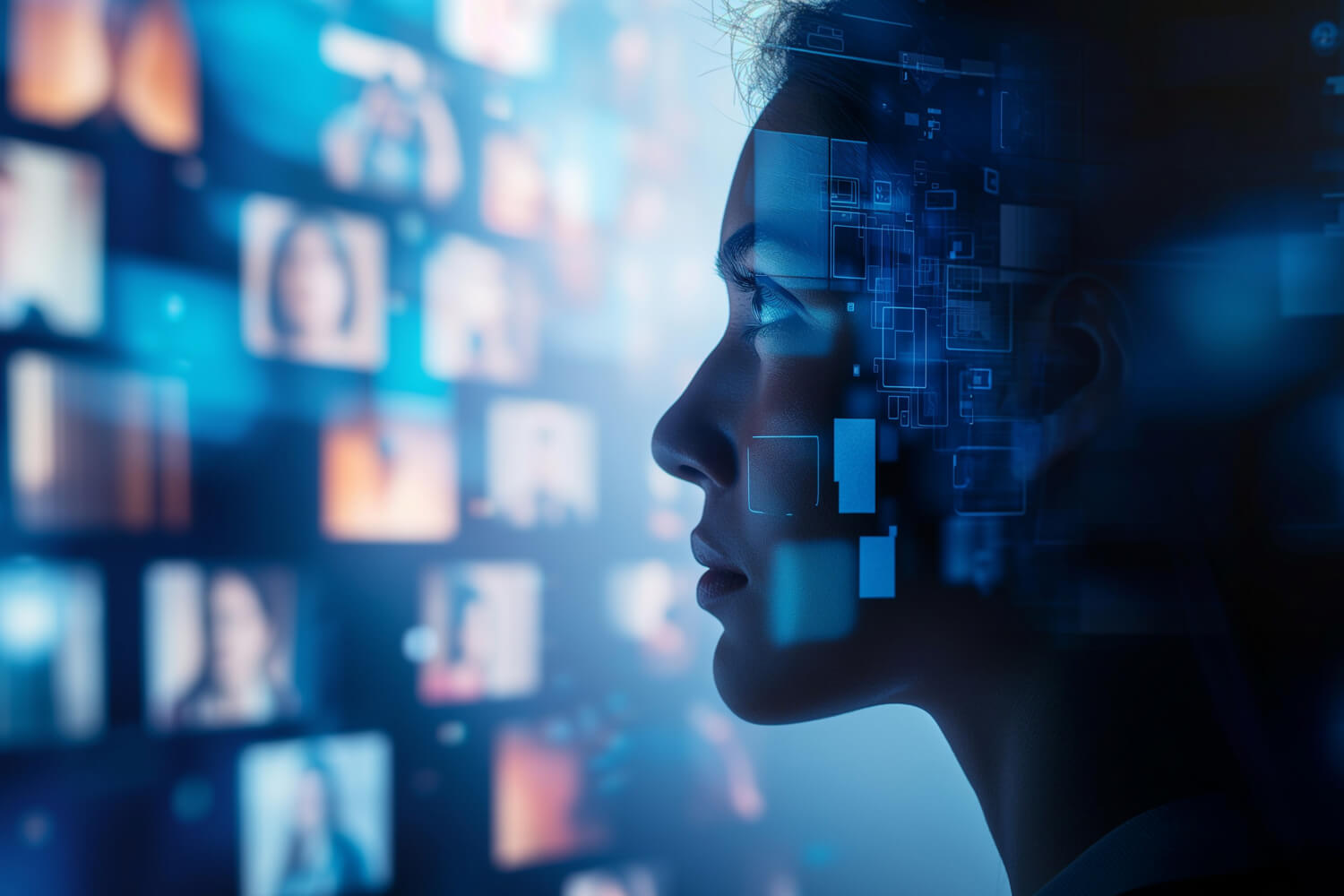Technology is no longer just an industry—it’s the foundation of modern life. From the way we work and communicate to how we travel, shop, and even think, technology drives every aspect of human progress. As we move further into 2025, the digital revolution continues to accelerate, fueled by advancements in artificial intelligence (AI), automation, quantum computing, and sustainable innovation.
What’s emerging is not just new technology—but a new world built around it. Businesses, governments, and individuals are all adapting to a future that’s faster, smarter, and more interconnected than ever before. This article explores how technology is transforming key areas of our lives, what trends are defining the digital age, and what lies ahead for humanity in the coming decade.
1. Artificial Intelligence: The New Digital Brain
AI is the heartbeat of the 21st-century tech revolution. In 2025, it’s no longer confined to labs or sci-fi movies—it’s embedded in nearly every system we use. From personalized shopping recommendations and smart home assistants to autonomous vehicles and medical diagnostics, AI is becoming both omnipresent and indispensable.
Recent breakthroughs in generative AI—tools capable of creating text, art, music, and code—have revolutionized creativity and productivity. Businesses are using AI to automate content creation, customer service, and even product design. In healthcare, AI algorithms can now detect diseases earlier than doctors in some cases, analyzing massive amounts of medical data with remarkable precision.
But with these advances come ethical challenges. Questions about data privacy, algorithmic bias, and job displacement continue to grow. The future of AI will depend on balancing innovation with responsibility—ensuring that the technology serves humanity, not replaces it.
As experts predict, the next phase of AI will focus on explainable AI—systems that can clearly communicate how decisions are made—and human-AI collaboration, where technology augments human capability rather than competes with it.

2. Automation and the Changing Workforce
Automation is transforming the global workforce faster than any previous industrial revolution. Robots, software bots, and intelligent systems are taking over repetitive tasks, increasing efficiency but also forcing workers to adapt.
Manufacturing and logistics are leading the automation wave, with smart factories using interconnected sensors and AI-driven robots to optimize production. Even white-collar jobs are evolving—AI tools now handle data entry, report generation, and financial analysis in seconds.
However, automation doesn’t spell the end of human labor—it’s redefining it. The jobs of the future will emphasize creativity, empathy, problem-solving, and digital literacy. Reskilling and continuous learning will be essential as people transition from traditional roles to those that complement technology.
Companies that invest in employee upskilling are already seeing positive returns, proving that human talent remains at the core of technological progress. The future workforce will likely be hybrid—a blend of human insight and machine precision.
3. Quantum Computing: Power Beyond Imagination
Quantum computing represents one of the most exciting frontiers in modern technology. Unlike classical computers that process bits in 0s and 1s, quantum computers use qubits that can represent multiple states simultaneously. This allows them to perform complex calculations exponentially faster than traditional machines.
In 2025, tech giants like IBM, Google, and startups such as Rigetti and IonQ are racing to achieve “quantum advantage”—the point where quantum computers outperform classical ones in practical tasks.
Quantum computing has the potential to revolutionize industries including cybersecurity, pharmaceuticals, climate modeling, and financial forecasting. It could help develop new materials, accelerate drug discovery, and create more secure encryption methods.
However, the technology is still in its infancy, facing challenges like qubit stability and scalability. Over the next decade, hybrid models—combining classical and quantum computing—will likely emerge, bringing quantum power into mainstream use.
4. The Rise of Sustainable Tech
As the planet faces climate challenges, technology is stepping up as a force for sustainability. Green tech—solutions that minimize environmental impact—is one of the fastest-growing areas of innovation.
Renewable energy systems powered by AI are optimizing energy production and distribution. Smart grids, solar panels, and wind turbines are now more efficient than ever. Electric vehicles (EVs) continue to rise, with companies like Tesla, Rivian, and BYD leading the charge toward a cleaner transport future.
Additionally, the tech industry is confronting its own environmental footprint. Data centers, once notorious for energy consumption, are increasingly powered by renewable energy and designed for efficiency. Companies are developing eco-friendly hardware, recycling electronic waste, and designing devices that last longer.
Sustainable tech isn’t just good for the planet—it’s good business. Consumers are demanding greener solutions, and investors are rewarding companies that align innovation with environmental responsibility.
5. The Internet of Things (IoT): A World of Connected Intelligence
The Internet of Things continues to expand, connecting everyday objects to the internet and transforming how we interact with our surroundings. Smart homes, wearable devices, connected cars, and industrial sensors are generating vast amounts of data that drive smarter decisions.
In cities, IoT is enabling “smart city” innovations—traffic systems that reduce congestion, sensors that monitor air quality, and intelligent waste management systems. In agriculture, IoT technology helps farmers monitor soil conditions, irrigation, and crop health in real time, improving yields while reducing waste.
As 5G networks mature, IoT devices are becoming faster, more reliable, and more secure. The challenge ahead will be managing the massive influx of data and ensuring privacy in a world where everything—from refrigerators to streetlights—is connected.
6. Cybersecurity in the Age of Connectivity
As digital systems become more interconnected, cybersecurity is now one of the most critical challenges of the modern era. Cyberattacks have grown in sophistication, targeting governments, corporations, and individuals alike.
In 2025, cybersecurity strategies are shifting from defense to prevention, using AI and machine learning to predict and neutralize threats before they occur. Biometric authentication, blockchain verification, and zero-trust architectures are redefining how we secure digital assets.
Cybersecurity is no longer just an IT issue—it’s a business and national security priority. The rise of cyber warfare and data breaches has made digital resilience a cornerstone of global stability. Future technologies will need to be “secure by design,” integrating protection into every layer of innovation.
7. Human-Tech Integration: The Next Evolution
Perhaps the most profound transformation is happening within us. The line between humans and technology is blurring as innovations in biotechnology, neural interfaces, and wearable devices enhance human capabilities.
Brain-computer interfaces (BCIs), pioneered by companies like Neuralink, aim to create direct communication between the brain and machines. Augmented reality (AR) and virtual reality (VR) technologies are reshaping education, healthcare, and entertainment by blending the digital and physical worlds.
Wearable health trackers now monitor heart rate, sleep, and stress levels, allowing individuals to take charge of their health like never before. These technologies mark the beginning of the cyborg age—a future where technology doesn’t just assist us, but becomes part of us.
8. The Ethical and Social Dimensions of Tech
While innovation promises progress, it also raises profound ethical questions. Who owns the data generated by AI? How do we prevent surveillance, misinformation, and inequality in a digital world?
Tech companies and governments are increasingly being held accountable for the social impact of their innovations. Ethical frameworks, digital rights laws, and transparency standards are being developed to ensure technology aligns with human values.
Education will play a vital role here. As society becomes more dependent on digital tools, technological literacy—understanding how systems work and how to use them responsibly—will be as important as reading and writing.

Conclusion: A Smarter, More Connected Tomorrow
Technology in 2025 is no longer about gadgets—it’s about transformation. It’s reshaping economies, redefining human potential, and challenging us to think differently about the future.
From AI-driven innovation to sustainable solutions and digital ethics, the next decade will be defined not just by technological progress, but by how wisely we use it. The tools we create today will determine the kind of world we live in tomorrow.
In the end, technology’s greatest power lies not in its speed or complexity—but in its ability to connect, empower, and elevate humanity. The future isn’t just high-tech—it’s human tech.

